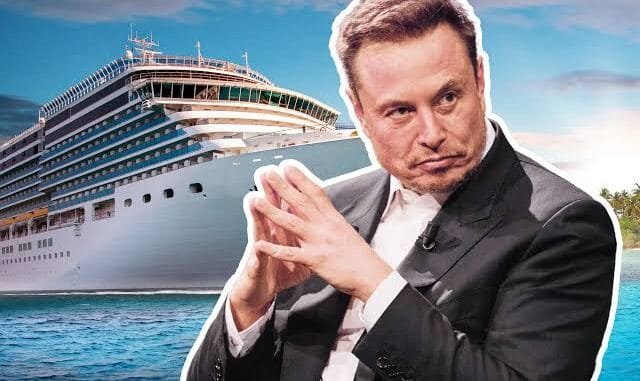
Elon Musk Buys Norwegian Cruise Line in a $18 Billion Maritime Tech Pivot
In a move that has sent shockwaves through both the maritime and tech sectors, billionaire entrepreneur Elon Musk has officially acquired Norwegian Cruise Line Holdings Ltd. (NCLH) for an estimated $18 billion. The acquisition, finalized late Thursday, marks Musk’s bold foray into the cruise industry, merging his innovation-driven ethos with the luxury travel sector.
The deal includes all three brands under NCLH’s umbrella — Norwegian Cruise Line, Oceania Cruises, and Regent Seven Seas Cruises. This acquisition signals a broader ambition by Musk to transform oceanic travel, with plans to modernize fleets, introduce green propulsion technologies, and integrate AI and satellite-based connectivity systems.
“This is not just a business move — it’s a revolution in transportation,” Musk stated during a virtual press briefing. “Cruise ships are the next frontier. I see immense potential in turning them into sustainable, technologically advanced vessels that are not just floating hotels, but marvels of 21st-century engineering.”
A Synergy of Space and Sea
Speculation about Musk’s interest in the cruise sector began months ago when Norwegian Cruise Line became one of the first major maritime companies to implement Starlink, SpaceX’s satellite internet system, across its entire fleet. The high-speed, low-latency internet has since become a staple of NCL’s guest experience, offering seamless streaming, video calls, and onboard connectivity far superior to traditional satellite services.
With Musk now in full control, industry experts expect tighter integration between SpaceX technologies and maritime operations — including autonomous navigation, real-time environmental monitoring, and AI-powered safety protocols.
Musk also hinted at a more ambitious idea: using retired cruise ships for offshore launch or AI research platforms. While speculative, such ideas are not out of character for the Tesla and SpaceX CEO, who is known for turning radical ideas into reality.
Environmental Revamp
One of Musk’s top priorities appears to be decarbonizing Norwegian’s fleet. Cruise ships have long faced criticism for their carbon emissions and environmental impact. Musk plans to retrofit vessels with Tesla battery systems and explore hydrogen fuel cell alternatives — technologies already in development for Tesla’s semi trucks and cybertrucks.
“Clean energy isn’t just for cars and rockets. The ocean deserves better,” Musk said.
Industry analysts say this could set a new benchmark for the cruise industry, which has been under pressure to meet stricter environmental regulations globally.
Financial and Strategic Impacts
Norwegian Cruise Line Holdings reported a full-year profit in 2023 — the first since the pandemic — with revenues topping $8.5 billion and a net income of $166.2 million. With a decade-long expansion plan already in motion, including the commissioning of eight new ships, the company was a prime candidate for acquisition.
Shares of NCLH spiked by 14% in after-hours trading following the announcement. Investors appear optimistic about the potential synergies between Musk’s various companies and the cruise line’s established market presence.
“Bringing Elon Musk’s vision into the cruise sector is like adding rocket fuel to an already resurging industry,” said Carla Monroe, an analyst at Morningstar. “We’re likely to see faster innovation, aggressive sustainability targets, and perhaps a complete rethinking of what cruise travel looks like.”
The Passenger Experience of the Future
For travelers, Musk’s takeover could mean a dramatically enhanced cruise experience. Norwegian may soon offer smart cabins controlled via neural interfaces or advanced apps, immersive virtual reality excursions powered by Neuralink, and personalized AI-driven itineraries. There are also rumors of Musk introducing hybrid cruise-space travel packages — though such projects remain purely conceptual at this stage.
Despite the buzz, some stakeholders remain cautious. Critics point out that Musk’s ventures, while visionary, often come with unpredictable timelines and growing pains. However, supporters argue that the cruise industry has remained technologically stagnant for years, and a shake-up is long overdue.
What’s Next?
While no immediate leadership changes have been announced, sources close to the deal suggest that Musk will appoint a special task force to oversee integration efforts. Norwegian’s current CEO, Harry Sommer, is expected to stay on during the transition.
If Musk’s track record is any indication, this acquisition could usher in a new era where the line between cruise travel, aerospace, and sustainability is blurred — and where the world’s oceans might just be the next frontier for Silicon Valley’s most daring innovator.
Leave a Reply